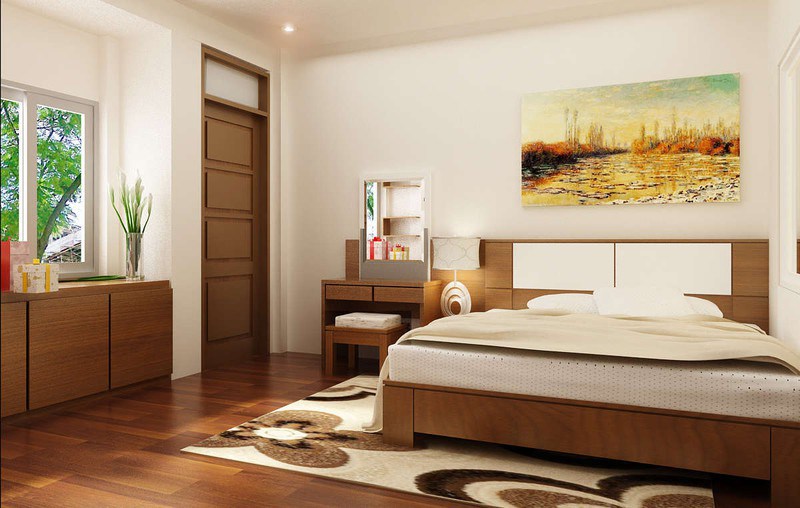Feng Shui, the ancient Chinese practice of arranging spaces to harmonize with natural forces, can significantly impact the atmosphere and functionality of your living and working environments. By applying Feng Shui principles, you can create spaces that support well-being, productivity, and overall balance. Here’s a detailed look at how to optimize various spaces using Feng Shui:
1. Living Room: The Heart of Your Home
The living room is often the central gathering place in a home, making its Feng Shui arrangement crucial for fostering positive energy and harmony.
Tips:
- Positioning the Sofa: Place the sofa in a commanding position, which means you should have a clear view of the door while seated. Avoid placing it directly in line with the door to prevent energy from rushing towards you.
- Balance and Symmetry: Arrange furniture to create a balanced and symmetrical layout. For instance, flanking the sofa with matching side tables and lamps can promote a sense of stability.
- Use of Color and Lighting: Incorporate colors that enhance relaxation and social interaction. Soft, warm tones like beige or light green are ideal. Ensure ample natural light and use lamps to create a cozy ambiance during the evening.
- Clutter-Free Zones: Keep the living room free of clutter to allow the Chi (energy) to flow freely. Use stylish storage solutions to maintain order without sacrificing aesthetics.

2. Bedroom: A Sanctuary for Rest
Your bedroom is your personal sanctuary, and its Feng Shui arrangement is vital for restful sleep and rejuvenation.
Tips:
- Bed Placement: Position the bed in the “commanding position”—diagonally across from the door but not directly in line with it. This placement allows you to see who is entering while lying in bed, which contributes to a sense of security.
- Avoid Electronics: Minimize the presence of electronics and work-related items in the bedroom. These can disrupt the serene atmosphere needed for restful sleep.
- Use Soothing Colors: Choose calming colors like soft blues, greens, or earthy tones for the walls and bedding. These colors promote relaxation and a restful environment.
- Incorporate Symmetry: Place matching nightstands and lamps on either side of the bed to create balance and harmony, which can also positively influence relationships.

3. Home Office: A Hub of Productivity
Creating an efficient and inspiring workspace is essential for productivity and success. Feng Shui can help optimize your home office setup.
Tips:
- Desk Placement: Place your desk in a commanding position, ideally facing the door without being directly in line with it. This allows you to be aware of anyone entering your workspace and fosters a sense of control.
- Organized Workspace: Keep your desk organized and free of clutter. Use trays and organizers to manage papers and supplies. A tidy workspace enhances focus and efficiency.
- Incorporate Motivating Elements: Add elements that inspire and motivate you, such as plants, artwork, or personal mementos. Ensure that these items are positioned where they can be seen easily without causing distraction.
- Lighting and Ergonomics: Use natural light whenever possible and supplement with adjustable lighting. Ensure your desk and chair are ergonomically designed to support comfort and reduce strain.
4. Dining Room: Nourishment and Connection
The dining room is where meals are enjoyed and connections are made. Feng Shui can enhance both the physical and social aspects of this space.
Tips:
- Table Positioning: Position the dining table centrally within the room to allow for easy flow of energy. Ensure there is enough space around the table for comfortable movement.
- Use of Round Tables: If possible, opt for a round table, which encourages inclusivity and smooth interactions. Sharp corners of rectangular tables can create “cutting” energy, which Feng Shui practitioners believe might cause tension.
- Enhance with Plants: Place healthy plants or a bowl of fresh fruit on the table to promote abundance and vitality. Avoid using artificial plants, which can block the flow of Chi.
- Lighting and Atmosphere: Create a warm and inviting atmosphere with soft lighting and pleasant decor. This encourages relaxation and meaningful conversations during meals.
5. Entrance: The Gateway to Your Home
The entrance is the first impression and energy gateway to your home. Its Feng Shui arrangement is crucial for attracting positive Chi.
Tips:
- Clear Pathway: Ensure the entrance is clean and free of clutter. A clear pathway invites positive energy into your home.
- Welcoming Decor: Use welcoming decor such as a well-maintained doormat, attractive plants, or a pleasant piece of art. These elements help to attract positive energy and make guests feel welcome.
- Good Lighting: Ensure the entrance is well-lit. Adequate lighting helps to illuminate the space and creates a positive, inviting environment.
By applying these Feng Shui principles to various spaces in your home or office, you can enhance the flow of positive energy, improve functionality, and create a more harmonious environment. Whether you’re looking to boost productivity, foster better relationships, or simply enjoy a more balanced living space, Feng Shui offers valuable insights to help you achieve your goals.